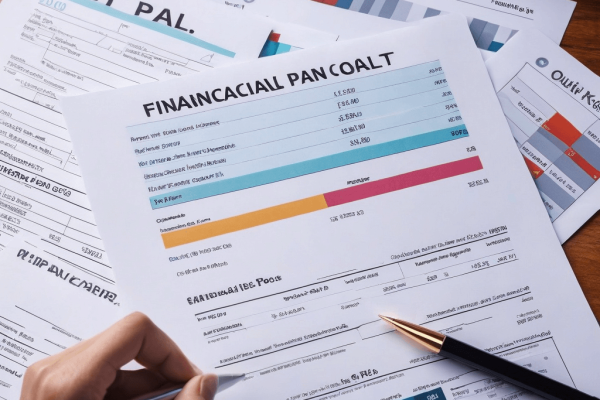Debt Management is crucial for anyone struggling with financial obligations.
By learning effective strategies, individuals can regain control over their finances and pave the way for a more secure future.
In this article, we will discuss various types of debt, how to create a manageable debt plan, and useful tips for reducing what you owe while maintaining financial health.
Understanding Debt Management
Debt Management is the process of overseeing and controlling your debts. It involves creating a plan that allows you to repay what you owe while managing your finances wisely.
Here are the steps to effective debt management:
Step 1: Understand your financial situation. Know how much debt you have, the interest rates, and your monthly payments.
Step 2: Prioritize debts by focusing on paying off high-interest debts first. Consider using strategies like the snowball or avalanche method.
Step 3: Create a budget to track your income and expenses, helping you allocate more funds toward debt repayment.
Step 4: Seek help from a professional or credit counselor for personalized guidance and assistance.
Types of Debt and Their Impact
Debt can take many forms and have varying impacts on individuals. It is essential to understand the types of debt and how they affect your financial situation.
Secured debt involves collateral, such as a home or car. If payments are missed, the lender can seize these assets.
Unsecured debt, like credit cards and medical bills, does not have collateral, making it riskier to lenders. Higher interest rates are typically associated with unsecured debt due to the increased risk.
Additionally, student loans and mortgages are specific types of debt that come with their own unique conditions and repayment plans. It’s crucial to analyze how each type contributes to your overall financial health.
Understanding these differences can help you make informed decisions about taking on and managing debt effectively.
Creating a Debt Management Plan
Creating a Debt Management Plan is vital for gaining control of your finances. Start by listing all your debts, including their balances and interest rates. This gives you a clear picture of what you owe.
Next, analyze your income and expenses. Make a budget that allocates funds toward debt repayment. Consider prioritizing high-interest debts by tackling them first while making minimum payments on others.
Set realistic goals based on your financial situation to stay motivated. It’s also important to track your progress regularly to see how much you’ve reduced your debt.
You might want to explore options like debt consolidation or negotiation with creditors if you need additional assistance. A well-structured plan can bring you peace of mind and pave the way for financial freedom.
Tips for Effective Debt Reduction
Tips for Effective Debt Reduction can help you manage and eliminate your debts more efficiently. First, create a monthly budget to monitor your expenses and see where you can cut back. This way, you can allocate more funds toward paying off your debts.
Consider the snowball method, where you pay off your smallest debts first to build momentum. Alternatively, use the avalanche method by targeting debts with the highest interest rates to save more money in the long run.
Always make at least the minimum payments on all your debts to avoid penalties. Negotiate lower interest rates with your creditors; they may be open to this if you have been a reliable customer.
Additionally, seek advice from a financial counselor if needed. Reducing your debt requires discipline and commitment, but it is achievable with a clear plan and consistent effort.
Using Debt Consolidation Wisely
Using Debt Consolidation Wisely can help simplify your payments and potentially lower your interest rates.
First, understand what debt consolidation is: it combines multiple debts into a single loan. This can make it easier to manage your payments.
Research your options carefully. You can use a personal loan, balance transfer credit card, or a home equity loan for consolidation. Compare interest rates and fees associated with each option.
Next, ensure that you don’t rack up new debt after consolidating. Stick to your budget and avoid unnecessary expenses.
Consider working with a financial advisor to create a repayment plan that fits your financial situation.
Remember, debt consolidation is not a magic solution; it requires commitment to repayment to be effective.
The Role of Credit Counseling
The Role of Credit Counseling is essential for those struggling with debt. Credit counselors are trained professionals who can provide guidance and support in managing your debts. They will help you assess your financial situation by reviewing your income, expenses, and outstanding debts. This process allows you to understand your options.
Credit counseling services can assist in creating a personalized plan for repayment. They often work with creditors to negotiate better terms, which may result in lower interest rates or reduced monthly payments.
It is crucial to choose a reputable counseling agency to avoid scams. Before signing up, ask about their fees and services. With the right credit counseling, you can gain valuable insights and take positive steps towards becoming debt-free.
Maintaining Financial Health Post-Debt
Maintaining Financial Health Post-Debt is crucial for long-term success. After paying off debts, it’s essential to develop new financial habits.
Start by creating a budget that includes savings, bills, and expenses. Allocating a portion of your income to an emergency fund can shield you from future financial issues.
Monitor your credit report regularly to ensure accuracy and detect any potential identity theft. Building a good credit score will help with future loans and possibly lower interest rates.
Consider setting financial goals, like saving for a home or retirement. Always practice cautious spending habits, and refrain from taking on unnecessary debt.
By focusing on these practices, you can ensure a strong financial foundation moving forward.
In Conclusion, Taking Control of Your Debt
Managing debt is crucial for financial stability. By understanding the types of debt, creating an effective debt management plan, and utilizing tools like debt consolidation and credit counseling, you can pave the way to a debt-free life.
Remember to maintain financial health post-debt by budgeting, saving, and monitoring your credit. These steps will not only help you stay out of debt but also build a secure financial future. With commitment and the right strategies, you can achieve financial peace of mind and take control of your financial destiny.


